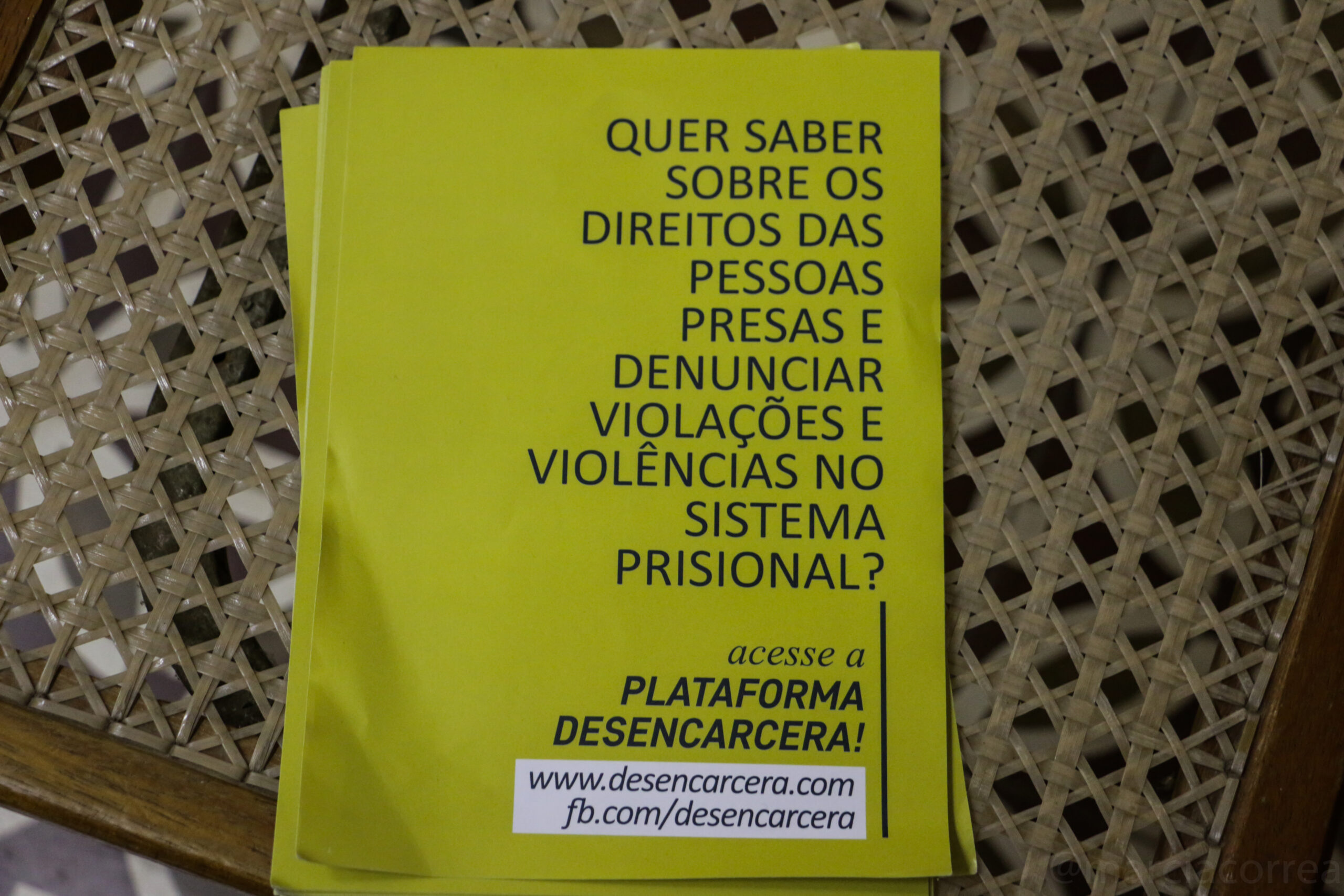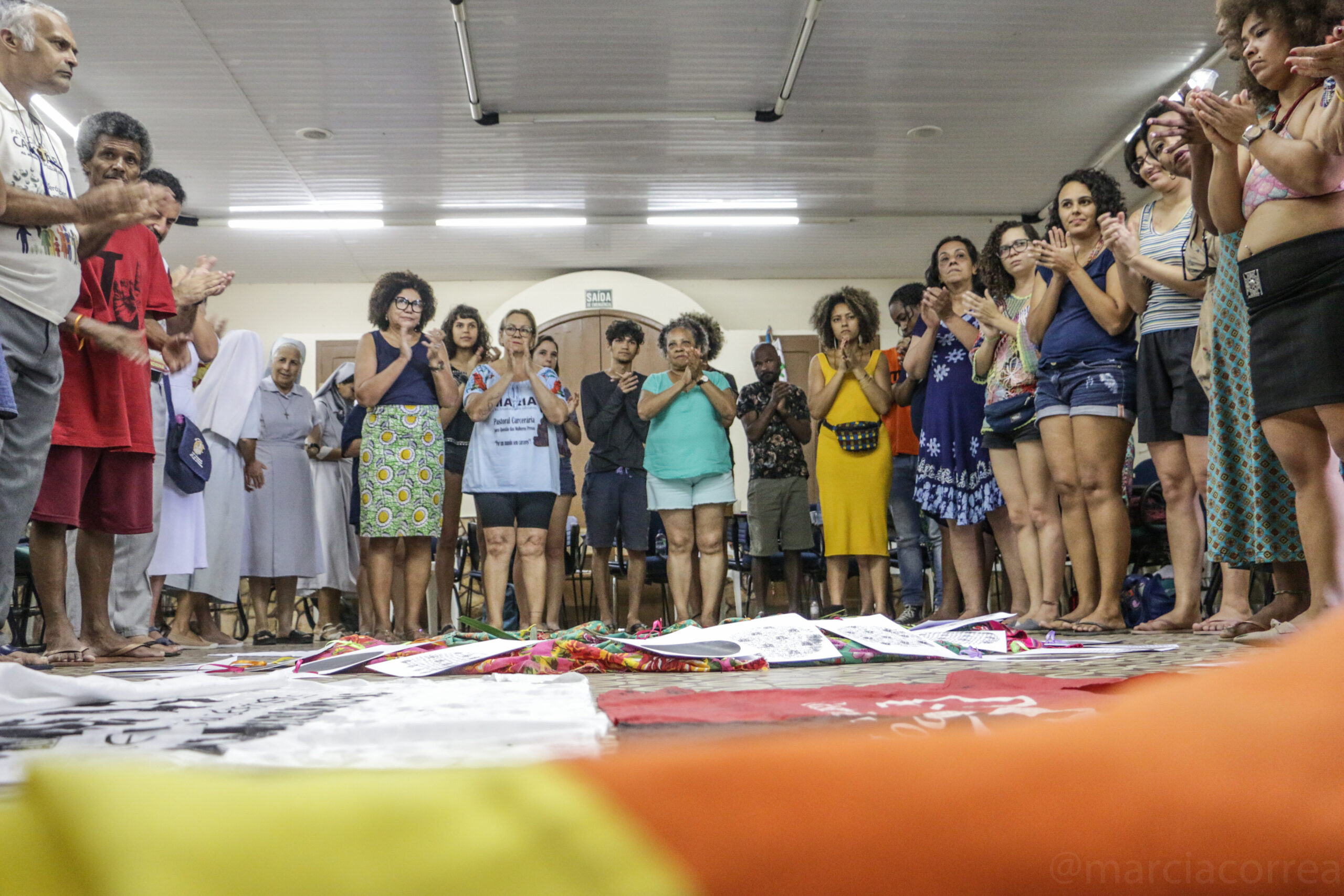Mass prison discharge: the struggle of organizations, family members and egresses
The National Agenda for prison discharge brings together organizations and institutions from across the country for a transformation of the Brazilian prison system.


Credits: Disclosure / Fran Silva
By Eduarda Nunes / Favela em Pauta – Lupa do Bem

Brazil has the 3rd largest prison population in the world and is the fourth country with the most women deprived of their liberty. According to data from Infopen, the National Survey of Penitentiary Information, in 2019 there were about 759,000 inmates for 461,000 places in prisons. In 2020, the number of people arrested decreased, but the problems continued.
Overcrowding and the suspension of human rights, including health and resocialization, are relevant issues of this reality that affects, above all, black and poor people.
In 2013, during a public hearing with the federal government claimed by the Mães de Maio, organizations and social movements fighting the penal state presented a document, whose main objective was a program to immediately prison discharge and reduce the prison population.
In 2016, the document was updated with more organizations that became part of the National Agenda for Disincarceration. Today, 43 organizations and 18 state fronts from all regions of the country make up the movement.
The Agenda built a popular program of prison discharge and demilitarization with 10 points of transformation and reflection for the Brazilian prison system. Among them are the suspension of any funding for the construction of new prisons; legislative changes to limit the application of preventive detentions; decriminalization of the trade and use of drugs; reduction of the penal system and prohibition of punishment for certain crimes; prohibition of privatization of prisons; and, finally, preventing and combating torture.


In August, five organizations that make up the Agenda were elected to represent the movement in the National Committee for the Prevention and Combat of Torture, a body linked to the federal government composed with the participation of civil society. In all, 12 entities were selected to compose the Committee during the 2021 – 2023 period.
The main objective of this body is to propose improvements for the monitoring of complaints by federal and state governments, improvement of actions to prevent and combat torture and implementation of the recommendations of the National Mechanism for the Prevention and Combat of Torture – MNPCT.
“So we have a lot of ideas and, in addition, we are hands-on. We have many suggestions and we think of many things that can be done”, he says.
Not only by the elected Agenda organizations but also by other civil society organizations that also work in defense of human rights, it is expected that this will be a new moment in the treatment of this issue in the country.
Participation of family members intensified
With visits suspended due to the pandemic, the relatives of people deprived of their liberty began to participate even more in the actions of the agenda.
Enabling greater protagonism of family members and ex-prisoners in the anti-prison movement was the main homework left over from the national meeting that took place in Ceará in 2019.
Realizing that these people did not see themselves as important participants in the Agenda, there was an effort to include them more and more. However, what boosted this role was the restriction of information and visits to prisoners during the pandemic.
“People didn’t have any news, they didn’t have information from their families, they didn’t know how he was. If he was dead, if he was alive, if he had Covid”, recalls Patricia.




In the meantime, a video of Maria Teresa dos Santos, Dona Teresa as she is known, went viral. She, a 61-year-old black woman, composes the National Agenda by the Association of Friends and Relatives of Persons Deprived of Liberty of Minas Gerais, spoke about the ten points of the Popular Program for prison discharge and Militarization and managed to reach and influence many people to work with the shame of having a family member incarcerated. Patricia defends that she is a great example for these people.
“When people are more informed, when they know about their rights, they will mobilize and they will run after them. When they don’t have information, they only know their duties, they don’t even know what to do, right? We realize this a lot and this was clear in our performance with the states”, he reveals.
From the beginning of the pandemic until now, the National Agenda has managed to consolidate 14 new state fronts, that is, more organizations, especially family members, have become part of the movement. Currently, 18 states are more organized to deal with irregularities and violations in the prison system, but coordination takes place in all 27 states of the federation.


